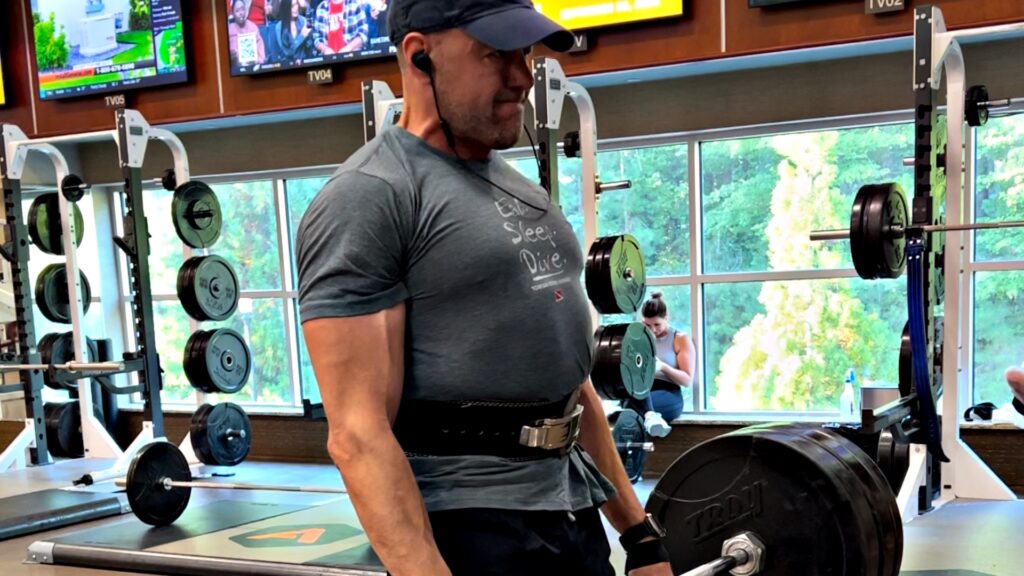
In recent years, the incorporation of martial arts into modern fitness regimes has gained considerable traction. This blend of ancient practice and contemporary fitness revolutionizes workout routines and provides a holistic approach to health and wellness. Martial arts offer more than just physical conditioning; they bring mental discipline and practical self-defense skills, making them an ideal complement to traditional fitness routines.
In the martial arts world, particularly within the Jiu-Jitsu community, it’s common to observe students who complement their training by working out at local gyms. This dual fitness and skill development approach offers a well-rounded regimen, allowing Jiu-Jitsu practitioners to enhance their physical strength, endurance, and overall athletic performance.
Integrating gym workouts with Jiu-Jitsu training can be highly beneficial. The gym sessions often focus on building muscle strength, cardiovascular health, and flexibility, which are crucial for any martial artist. Weight training, cardio exercises, and stretching routines improve physical capabilities and aid in injury prevention, a significant factor for those engaging in a physically demanding sport like Jiu-Jitsu.
“The more you sweat in training, the less you bleed in combat.” – Navy SEALs Proverb
Physical Conditioning Beyond Conventional Workouts
Martial arts training is a comprehensive physical workout. Unlike conventional gym routines that often focus on specific muscle groups or cardiovascular endurance, martial arts provide a full-body workout. They involve a range of motions that enhance flexibility, improve balance, and build muscle strength. Techniques practiced in martial arts, from kicks and punches to blocks and grappling, engage multiple muscle groups, ensuring a balanced body development.
“Knowing is not enough, we must apply. Willing is not enough, we must do.” – Bruce Lee
Mental Discipline and Focus
One of the key elements that martial arts add to a fitness regime is mental discipline. The practice of martial arts is not just about physical prowess but also mental fortitude. Training sessions often begin and end with meditation, helping practitioners to develop focus and mindfulness. This mental discipline benefits all aspects of life, from stress management to improved concentration and decision-making skills.
Martial arts stand apart from other educational environments due to their distinctive approach to developing personal attributes, especially willpower. Unlike conventional educational settings that primarily focus on academic skills and knowledge, martial arts schools offer a holistic growth experience, strengthening both the body and the mind. In these spaces, the cultivation of willpower is as integral as learning physical techniques.
Developing Willpower through Discipline and Routine
The foundation of martial arts is discipline, a key component in developing willpower. Regular practice, adherence to routines, and the discipline of following rules and etiquette in the dojo all contribute to reinforcing self-control and determination. With its rituals and expectations, this structured environment challenges individuals to commit, persevere, and push beyond their comfort zones – essential aspects of strengthening willpower.
Martial arts training involves rigorous physical challenges that test and expand a practitioner’s limits. From executing complex techniques to enduring strenuous workouts, students learn to navigate physical discomfort and fatigue. This constant pushing of physical boundaries is not just about building strength or skill; it’s a lesson in resilience, teaching students to mentally persevere when their bodies want to give up, thereby fortifying their willpower.
In martial arts, failure is seen as essential to learning and growth, not as a setback. Students are taught to embrace mistakes and setbacks as opportunities for improvement. This perspective fosters a growth mindset, where the will to improve and succeed is continuously nurtured. Over time, students learn to apply this resilience to challenges outside the dojo, using their cultivated willpower to face various situations.
Martial arts training is often goal-oriented, with systems of belts or ranks marking progress. Setting and striving for these goals is a powerful exercise in willpower. Achieving each milestone requires dedication, consistent effort, and the will to continue despite difficulties. Setting goals, working diligently towards them, and experiencing the satisfaction of achieving them reinforce the student’s willpower and teach the value of persistence.
Martial arts also emphasize mindfulness and mental fortitude. Practices like meditation and controlled breathing exercises, often integral parts of martial arts training, enhance focus and self-awareness. This mental training is crucial in developing a strong will, as it teaches students to control their thoughts and emotions, a fundamental aspect of willpower.
“The best fighter is never angry.” – Lao Tzu
Self-Defense Skills in a Modern World
In the contemporary world, where safety and personal security are increasingly becoming priorities, the value of self-defense skills is paramount. The ability to protect oneself in potentially harmful situations is not just a useful skill but a necessary one. Choosing the right source for training, such as reputable martial arts schools or defensive tactics programs, is essential in equipping individuals with these vital skills.
Martial arts and defensive tactics training go beyond the conventional scope of fitness. While traditional exercise regimes often focus on improving physical appearance and overall health, martial arts incorporate these benefits while empowering individuals with the confidence and ability to handle real-world confrontations. This practical application of martial arts makes it attractive for those who want their fitness routine to have practical, real-life benefits.
Moreover, martial arts training fosters a sense of empowerment. Knowing that you can defend yourself and your loved ones can significantly boost your confidence and reduce fear and anxiety about personal safety. This psychological aspect is as important as the physical techniques, as a calm and composed mind is crucial in effectively handling an unexpected situation.
Diversity in Training
Martial arts encompass a wide range of styles, from the striking techniques of Thai Boxing and Jeet Kune Do to the grappling moves of Brazilian Jiu-Jitsu, Combat Submission Wrestling, and Judo. This variety allows individuals to choose a style that resonates with their fitness goals, improving flexibility, building strength, or enhancing endurance. It also keeps the training dynamic and exciting, unlike routine gym workouts that can become monotonous.
Community and Support
Joining a martial arts class often means becoming part of a community. The Academy or training hall is not just a place to work out; it’s a space where individuals with shared interests come together. This community aspect provides a support system that can be lacking in solo fitness routines. The encouragement and motivation from instructors and fellow practitioners enhance the overall fitness experience.
Integrating martial arts into modern fitness regimes offers a well-rounded approach to health and fitness. It combines physical conditioning, mental discipline, and practical self-defense skills in a way that traditional fitness routines often lack. As people continue to seek more comprehensive and engaging ways to stay fit, martial arts stand out as a perfect complement to their fitness journey. Whether you are looking to spice up your workout routine, improve mental focus, or learn self-defense, martial arts provide an avenue worth exploring.

Alan Baker is celebrated for his exceptional skill in creating customized Defensive Tactics Programs and his prowess in high-performance coaching. Tailoring his expertise to meet the needs of law enforcement agencies, military groups, and security companies, Alan crafts training curriculums that are grounded in practical techniques, adaptability to real-life scenarios, and intensive, situation-specific exercises. His training methodologies are meticulously designed to elevate the operational effectiveness and situational preparedness of individuals in high-stakes environments. Learn more about Alan’s distinctive programs here.
Beyond his tactical acumen, Alan is also a foremost “mindset” coach, adept at tapping into the untapped potential within individuals. He is particularly attuned to the current societal trend that often overlooks traditional masculinity and the cultivation of strength. Addressing this, Alan champions the development of a warrior spirit — the readiness to confront chaos and take decisive action when necessary. He passionately mentors professionals, entrepreneurs, and individuals on their personal development journeys, focusing on fostering a mindset dedicated to excellence. His coaching is anchored in pragmatic strategies that fortify mental resilience, enhance focus, and stimulate drive. Engaging with Alan sets you on a transformative journey where mental obstacles are overcome, innate strengths are recognized and honed, and your objectives become distinctly attainable. His insights are key in boosting performance and developing a mindset geared for victorious accomplishments.
For a deeper exploration of Alan’s mindset philosophy and his approach to empowering especially men to embrace their strength and resilience, delve into his insightful collection of books. If you’re ready to accelerate your personal and professional growth under Alan’s expert guidance, connect through his official website.

